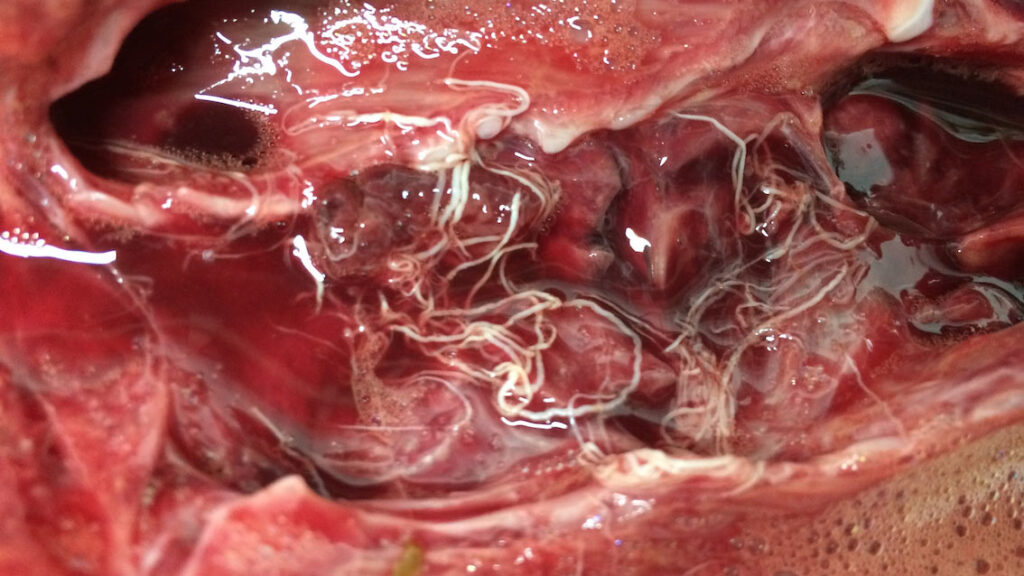Farmer and vet survey aims to clarify lungworm resistance
 © Ben Strugnell, Farm Post Mortems
© Ben Strugnell, Farm Post Mortems Cattle farmers and vets can help scientists understand whether resistance is developing in a deadly nematode by completing a survey.
The Control of Worms Sustainably (Cows) group has launched the survey to discover how lungworm is affecting UK cattle farms by tracking cases of the disease through the 2024 grazing season.
The launch is timed to coincide with spring lungworm vaccinations in youngstock, although Cows expects surveys to start being completed in late summer, when coughing is typically heard.
See also: Pre-turnout vaccination could stop lungworm deaths in calves
Vets and farmers can access the survey and tell parasite experts about:
- When outbreaks occur
- What class of stock is most affected
- What clinical signs are seen
- How well stock respond to treatment.
Cows has recommended the current priority for farmers is to vaccinate young cattle before turnout if they are on farms with a high risk of lungworm.
Efficacy testing
On farms where efficacy testing takes place, Cows advises the following:
- Faecal samples are best collected on the day of treatment and 14 days later
- Lungworms collected from post-mortems can also be submitted to Moredun Research Institute for further investigation
- Details of how to take samples and where to send them to are outlined in the survey
- If there is a suspected lack of efficacy, vets are asked to ensure the Veterinary Medicines Directorate and pharmaceutical company are notified.
Resistance query
Helen Carty, veterinary centre manager at Scotland’s Rural College, said the veterinary community was currently unsure whether lungworm products were failing to control the disease because of growing resistance to them, or because of underdosing or inappropriate timing of treatments.
“Many farmers use a pour-on when they hear cattle coughing out in the fields. If the cough goes away, it is presumed that the wormer has worked,” Helen said.
“If they cough again, what should the farmer do? It can be hard to know if the cough is because lungworm are still present, or have the cattle developed a bacterial infection because their lungs were damaged?”
